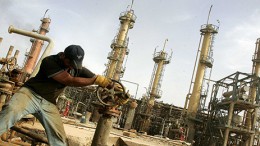Oil futures bet on a price below $70
MADRID | By Ana López-Varela | “The OPEC will not cut production even if the oil barrel drops to $20.” The intentions of the Saudi Oil Minister, Ali al Naimi, are stark. But, how will the OPEC’s decision of maintaining the production quota at 30 million barrel per day affect the markets? And which are the forecasts that market watchers have regarding the oil? In general, they expect the prices to increase. However, futures traders remain more conservative.





